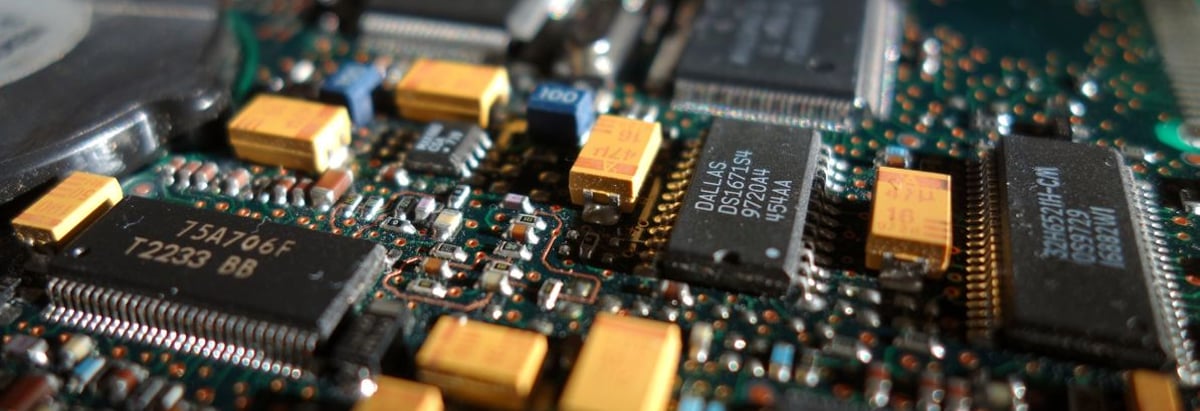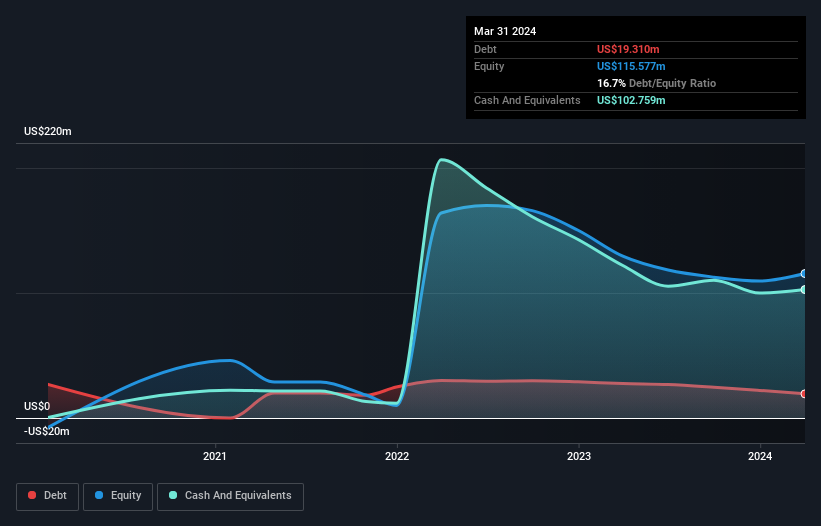- United States
- /
- Semiconductors
- /
- NasdaqCM:RGTI
Does Rigetti Computing (NASDAQ:RGTI) Have A Healthy Balance Sheet?

David Iben put it well when he said, 'Volatility is not a risk we care about. What we care about is avoiding the permanent loss of capital.' So it seems the smart money knows that debt - which is usually involved in bankruptcies - is a very important factor, when you assess how risky a company is. Importantly, Rigetti Computing, Inc. (NASDAQ:RGTI) does carry debt. But is this debt a concern to shareholders?
When Is Debt Dangerous?
Debt and other liabilities become risky for a business when it cannot easily fulfill those obligations, either with free cash flow or by raising capital at an attractive price. Ultimately, if the company can't fulfill its legal obligations to repay debt, shareholders could walk away with nothing. However, a more frequent (but still costly) occurrence is where a company must issue shares at bargain-basement prices, permanently diluting shareholders, just to shore up its balance sheet. Having said that, the most common situation is where a company manages its debt reasonably well - and to its own advantage. When we examine debt levels, we first consider both cash and debt levels, together.
Check out our latest analysis for Rigetti Computing
How Much Debt Does Rigetti Computing Carry?
You can click the graphic below for the historical numbers, but it shows that Rigetti Computing had US$19.3m of debt in March 2024, down from US$27.5m, one year before. However, it does have US$102.8m in cash offsetting this, leading to net cash of US$83.4m.

How Strong Is Rigetti Computing's Balance Sheet?
According to the last reported balance sheet, Rigetti Computing had liabilities of US$24.9m due within 12 months, and liabilities of US$21.7m due beyond 12 months. Offsetting this, it had US$102.8m in cash and US$4.71m in receivables that were due within 12 months. So it actually has US$60.9m more liquid assets than total liabilities.
It's good to see that Rigetti Computing has plenty of liquidity on its balance sheet, suggesting conservative management of liabilities. Due to its strong net asset position, it is not likely to face issues with its lenders. Succinctly put, Rigetti Computing boasts net cash, so it's fair to say it does not have a heavy debt load! There's no doubt that we learn most about debt from the balance sheet. But ultimately the future profitability of the business will decide if Rigetti Computing can strengthen its balance sheet over time. So if you want to see what the professionals think, you might find this free report on analyst profit forecasts to be interesting.
Over 12 months, Rigetti Computing made a loss at the EBIT level, and saw its revenue drop to US$13m, which is a fall of 2.6%. We would much prefer see growth.
So How Risky Is Rigetti Computing?
Statistically speaking companies that lose money are riskier than those that make money. And the fact is that over the last twelve months Rigetti Computing lost money at the earnings before interest and tax (EBIT) line. And over the same period it saw negative free cash outflow of US$58m and booked a US$73m accounting loss. However, it has net cash of US$83.4m, so it has a bit of time before it will need more capital. Even though its balance sheet seems sufficiently liquid, debt always makes us a little nervous if a company doesn't produce free cash flow regularly. There's no doubt that we learn most about debt from the balance sheet. However, not all investment risk resides within the balance sheet - far from it. These risks can be hard to spot. Every company has them, and we've spotted 3 warning signs for Rigetti Computing you should know about.
If, after all that, you're more interested in a fast growing company with a rock-solid balance sheet, then check out our list of net cash growth stocks without delay.
New: AI Stock Screener & Alerts
Our new AI Stock Screener scans the market every day to uncover opportunities.
• Dividend Powerhouses (3%+ Yield)
• Undervalued Small Caps with Insider Buying
• High growth Tech and AI Companies
Or build your own from over 50 metrics.
Have feedback on this article? Concerned about the content? Get in touch with us directly. Alternatively, email editorial-team (at) simplywallst.com.
This article by Simply Wall St is general in nature. We provide commentary based on historical data and analyst forecasts only using an unbiased methodology and our articles are not intended to be financial advice. It does not constitute a recommendation to buy or sell any stock, and does not take account of your objectives, or your financial situation. We aim to bring you long-term focused analysis driven by fundamental data. Note that our analysis may not factor in the latest price-sensitive company announcements or qualitative material. Simply Wall St has no position in any stocks mentioned.
Have feedback on this article? Concerned about the content? Get in touch with us directly. Alternatively, email editorial-team@simplywallst.com
About NasdaqCM:RGTI
Rigetti Computing
Through its subsidiaries, builds quantum computers and the superconducting quantum processors the United States, the United Kingdom, rest of Europe, Asia, and internationally.
Flawless balance sheet slight.
Similar Companies
Market Insights
Community Narratives



